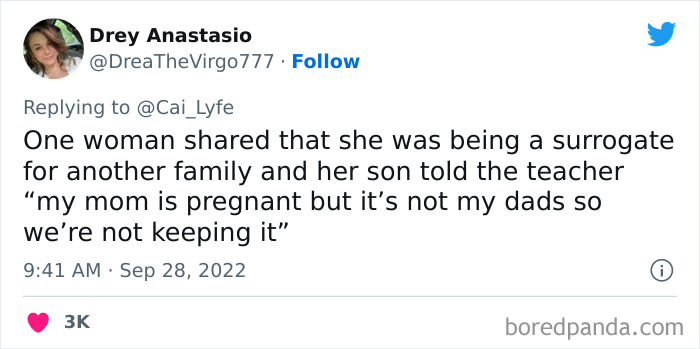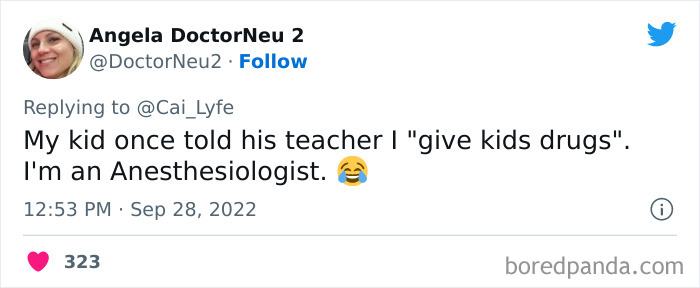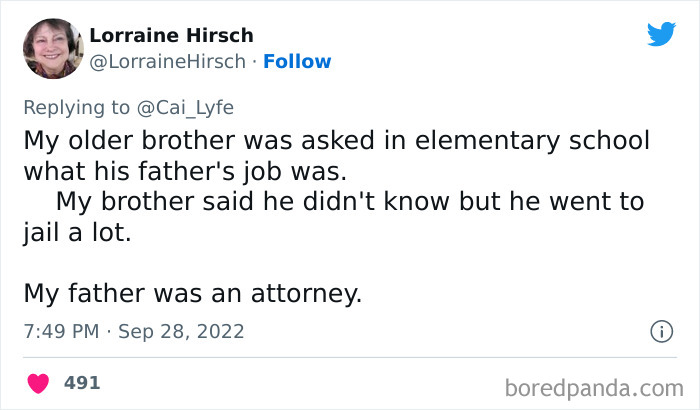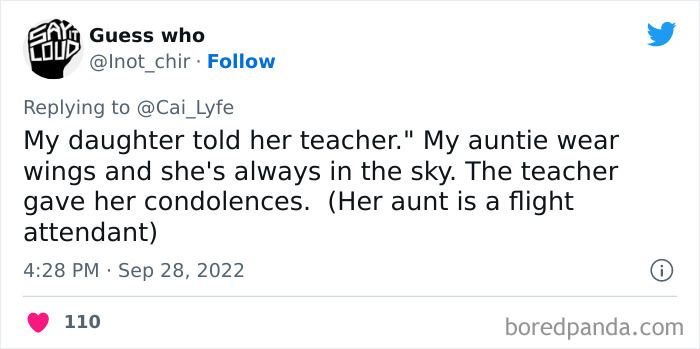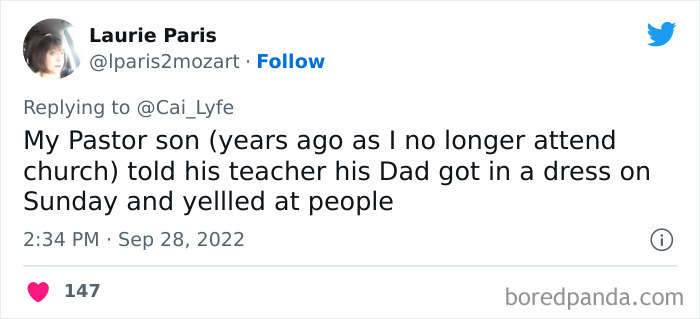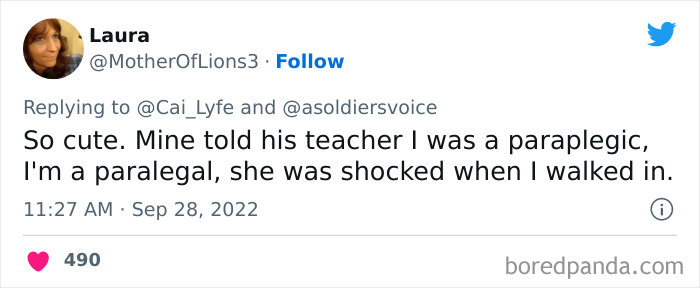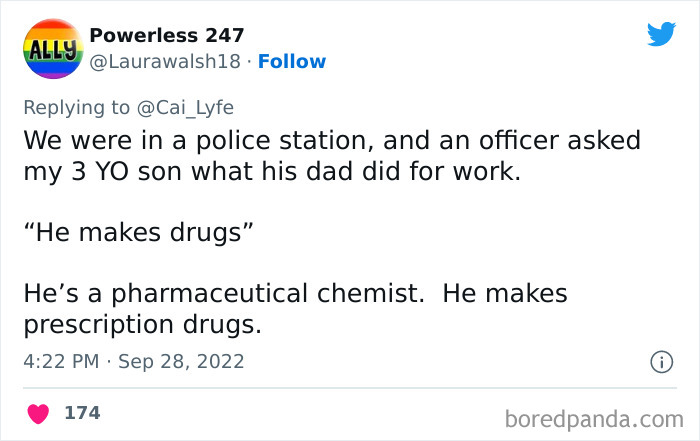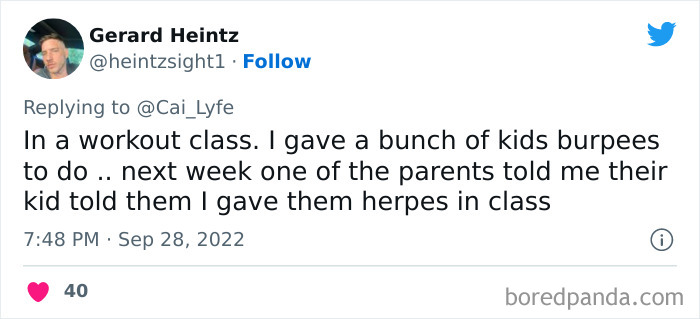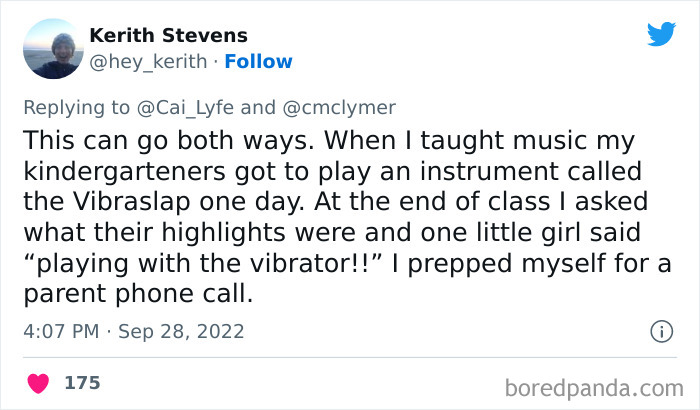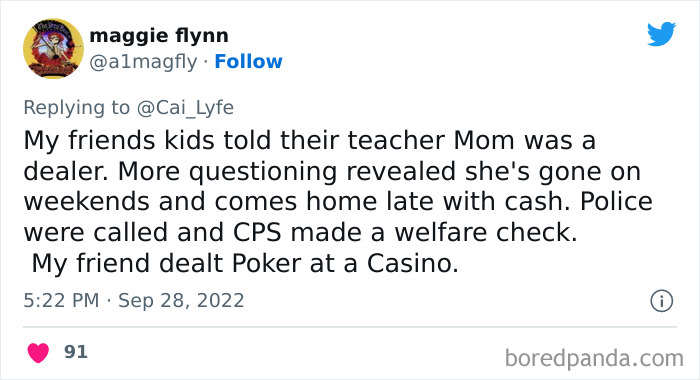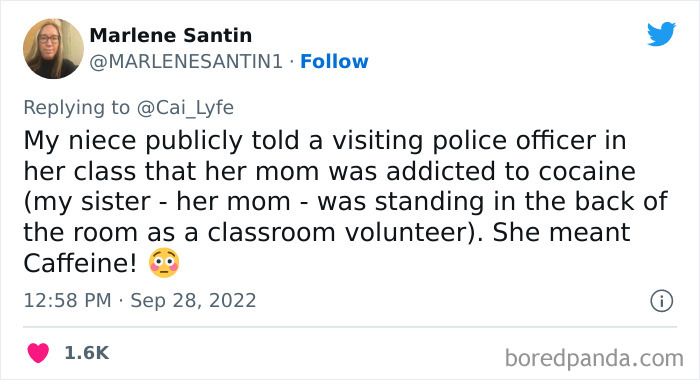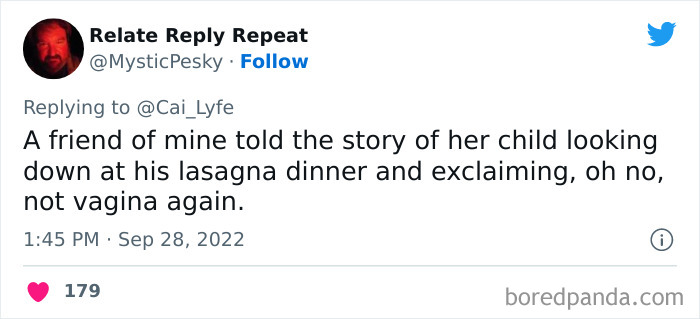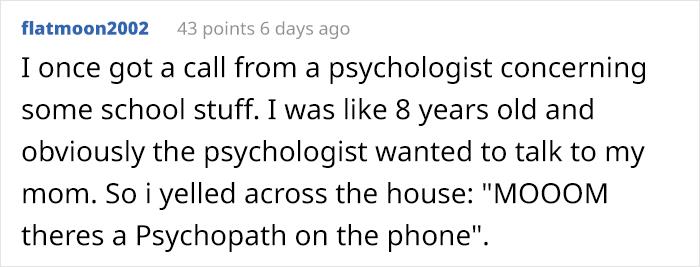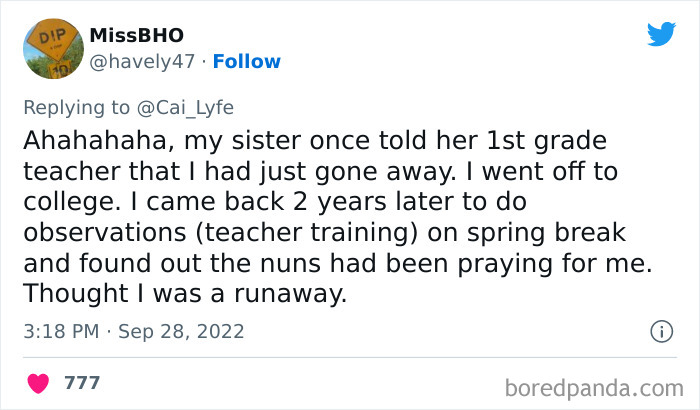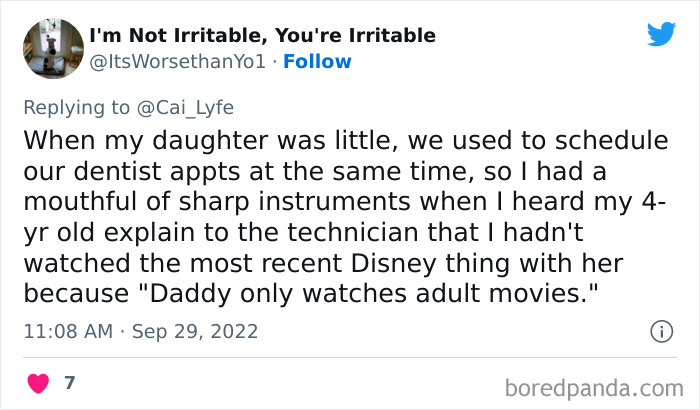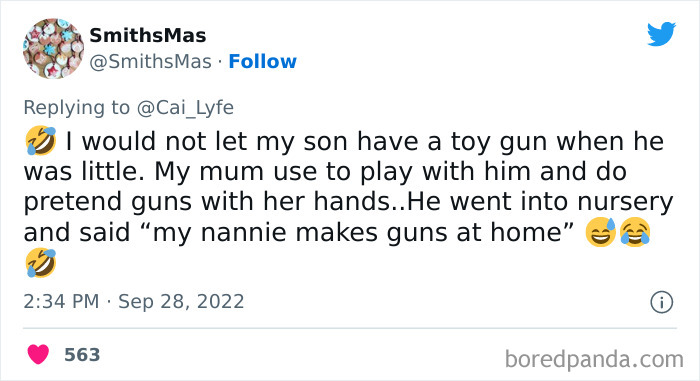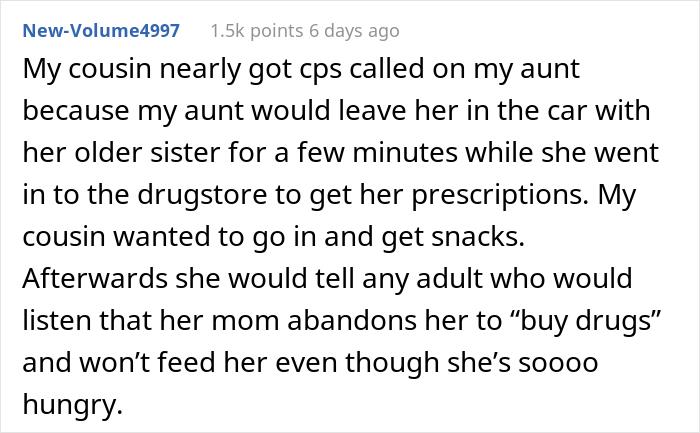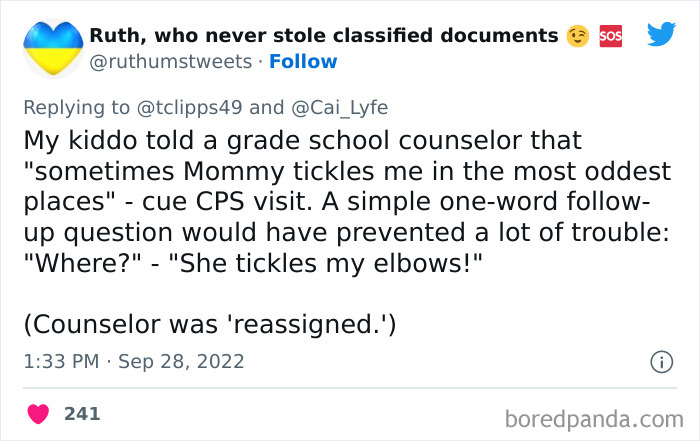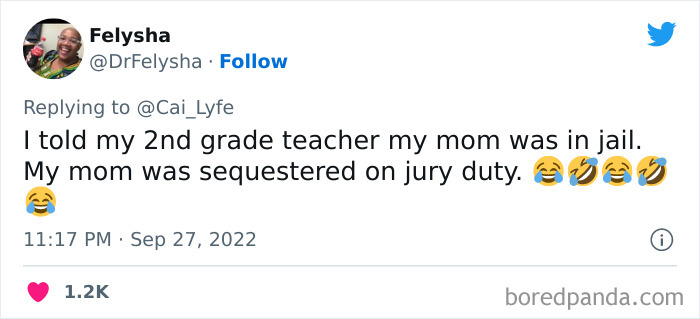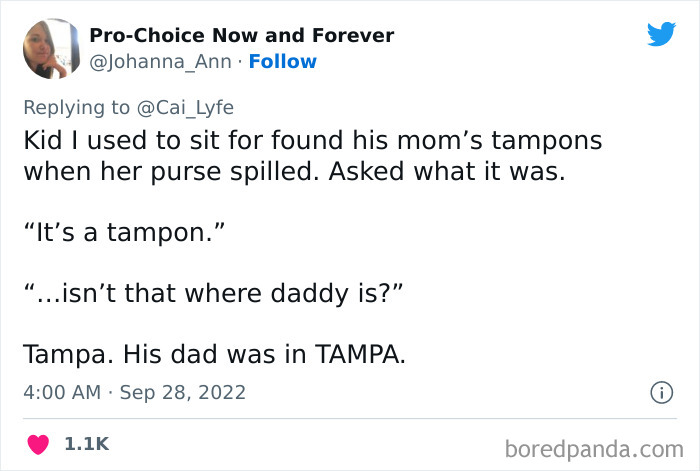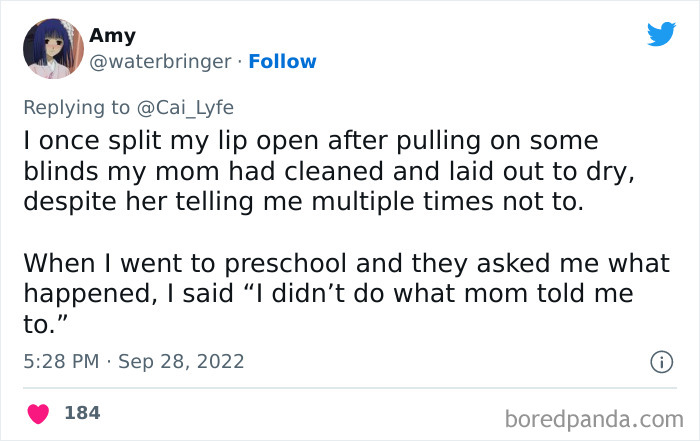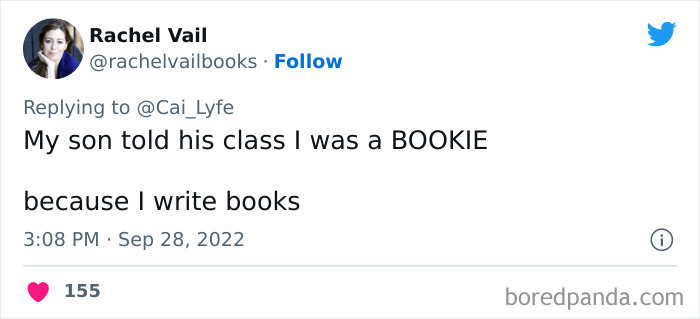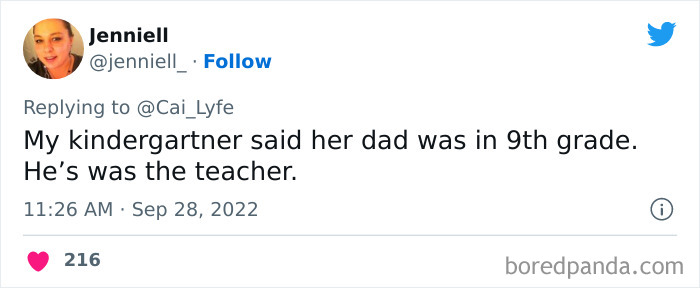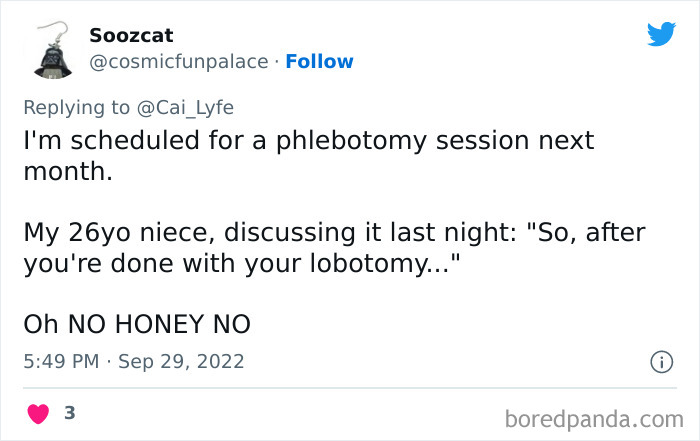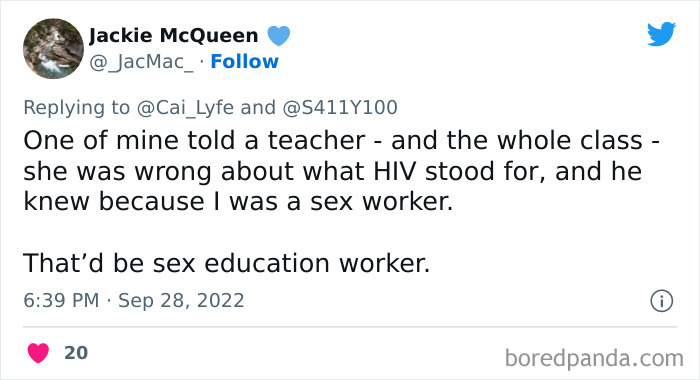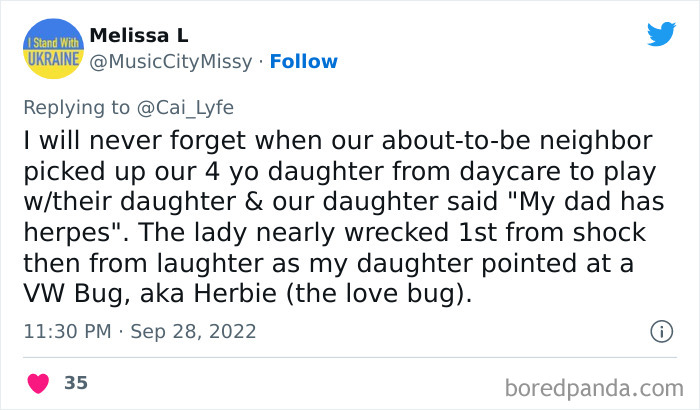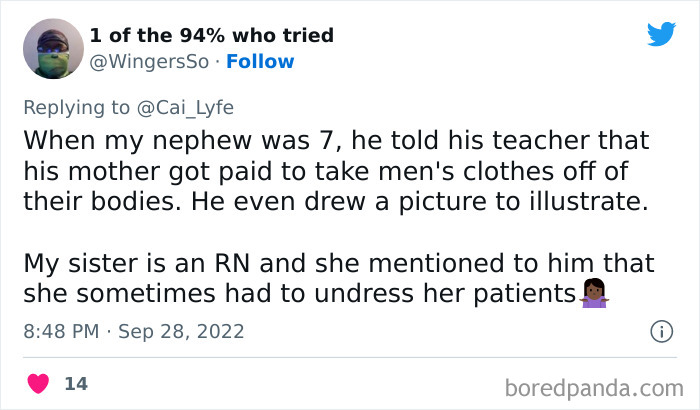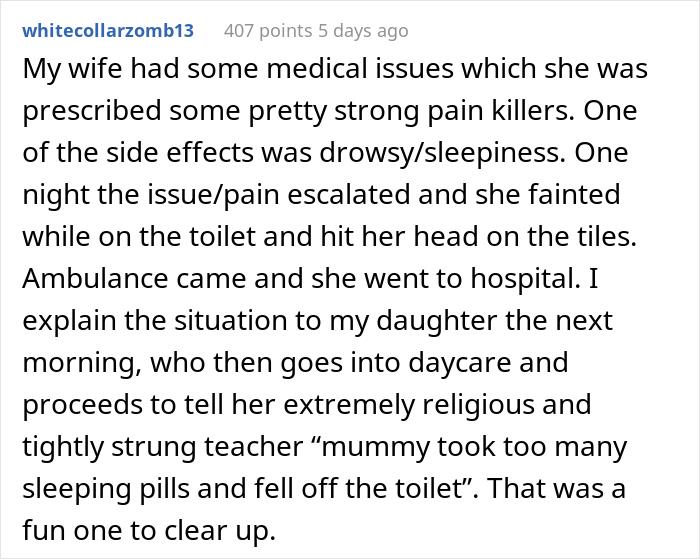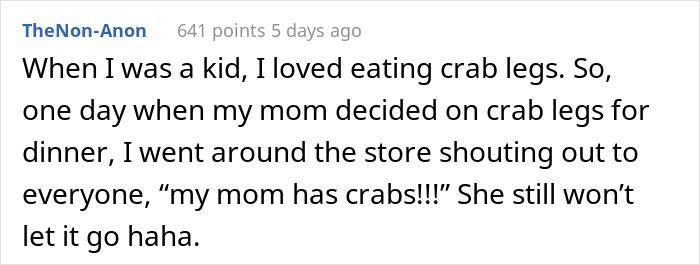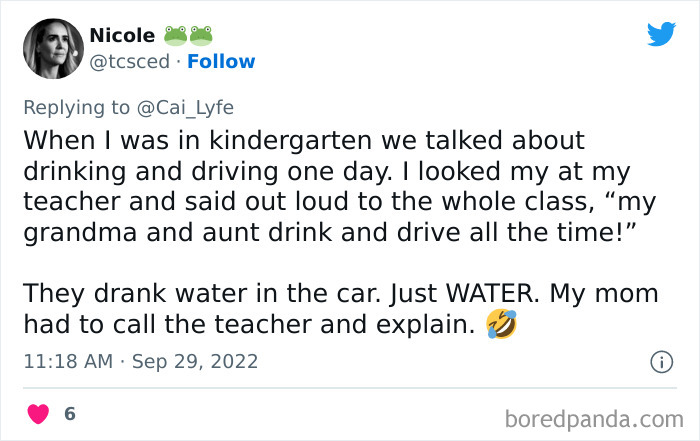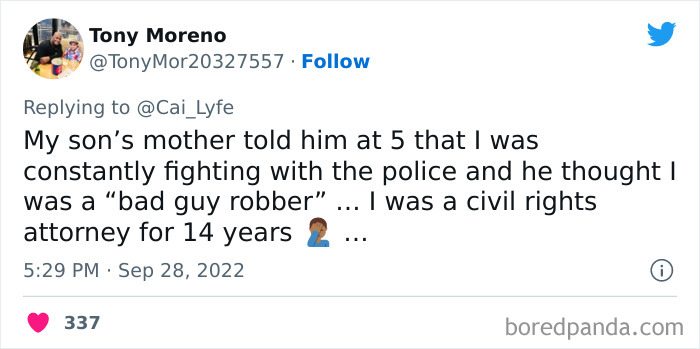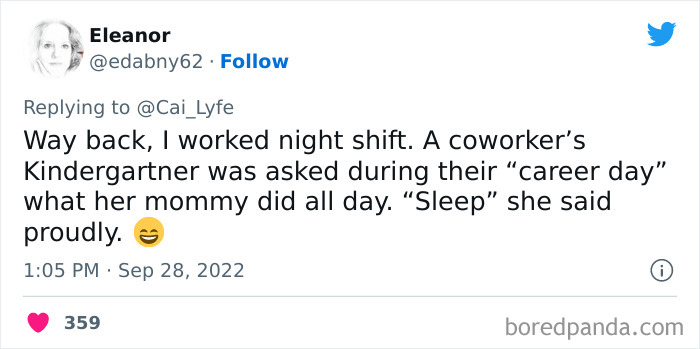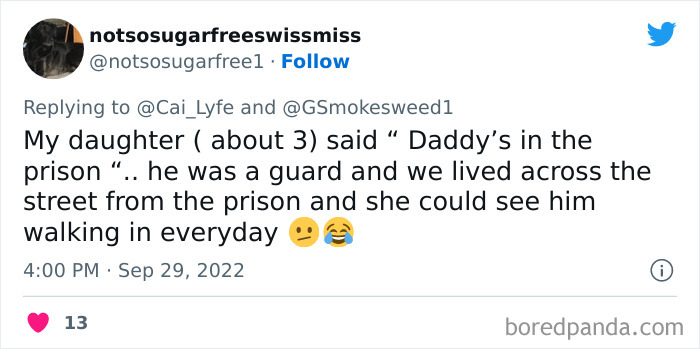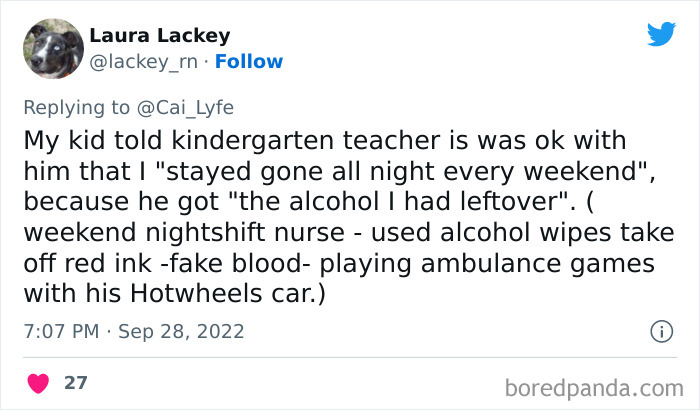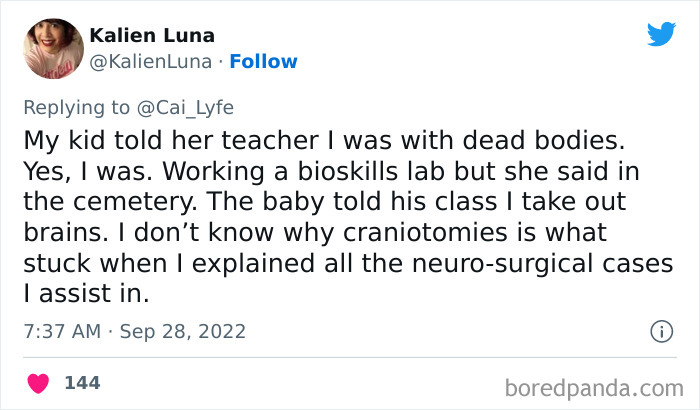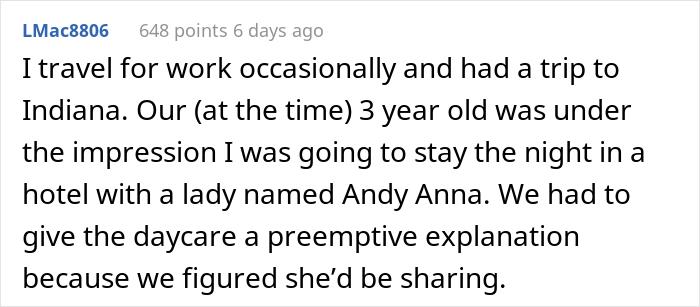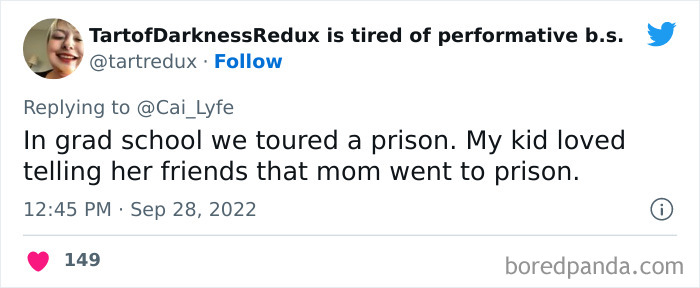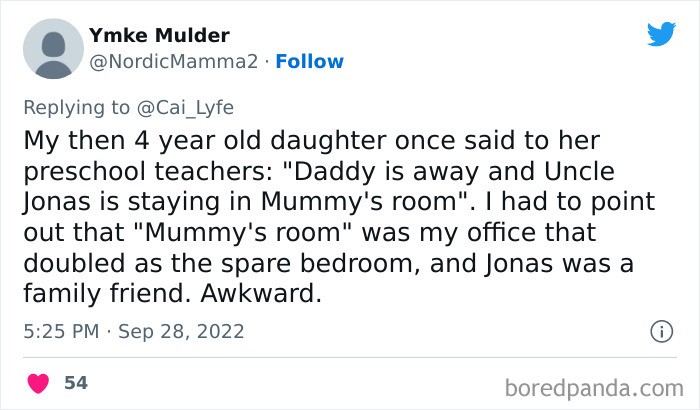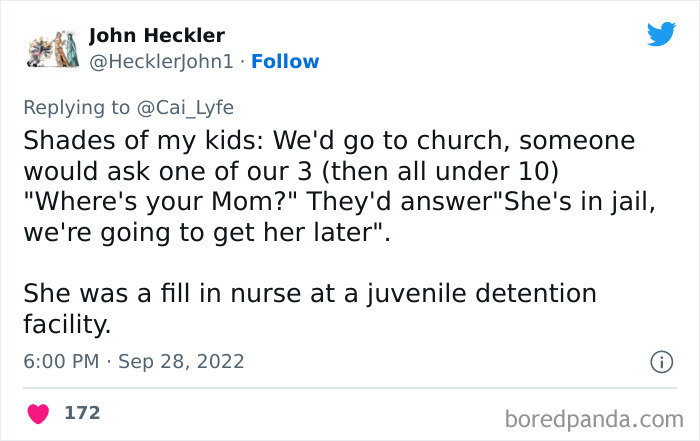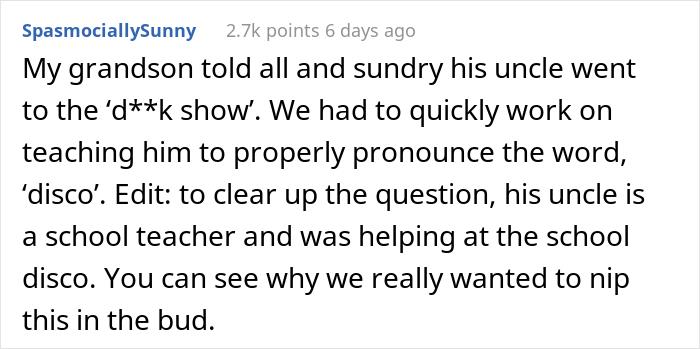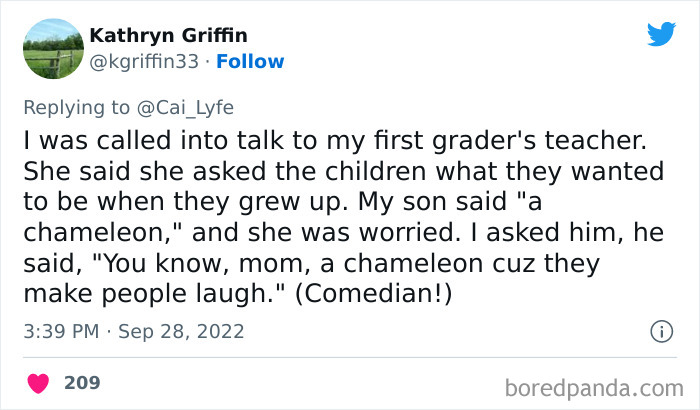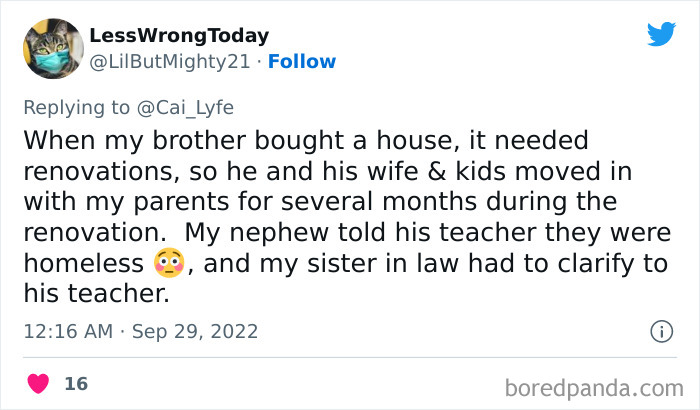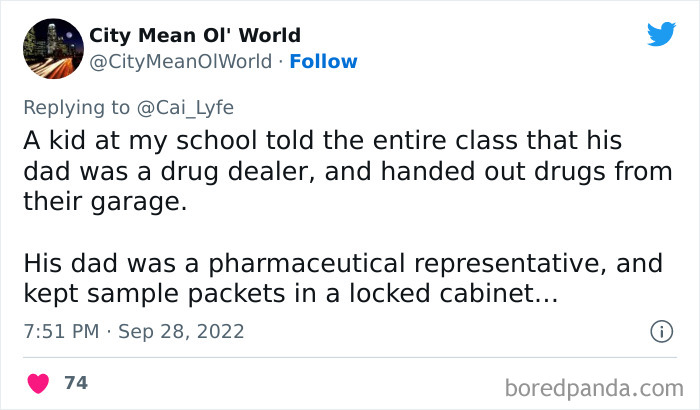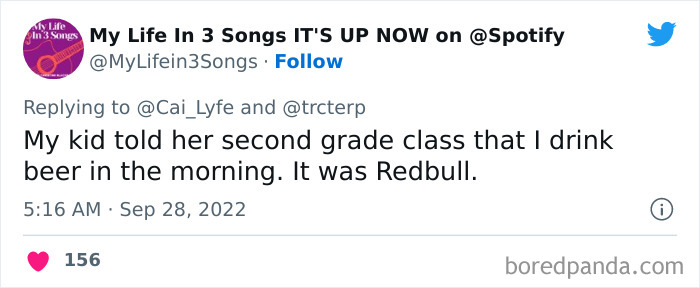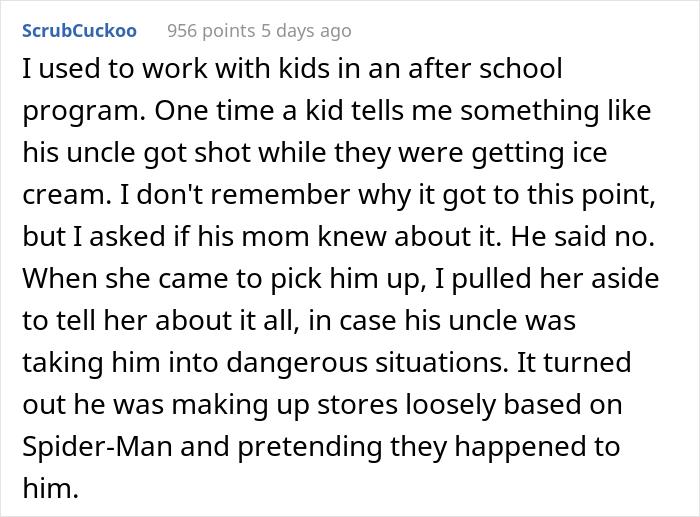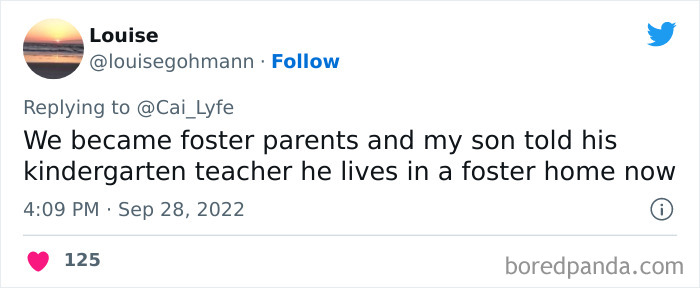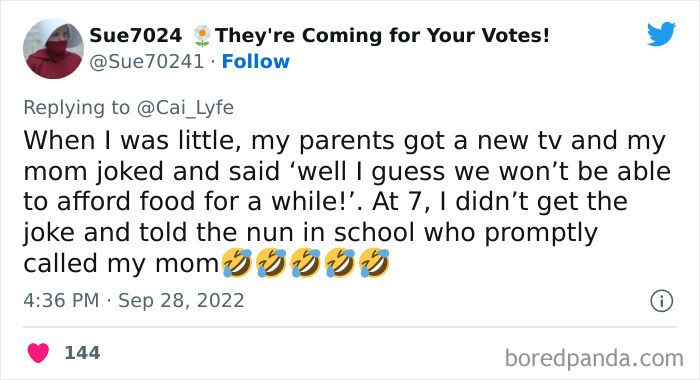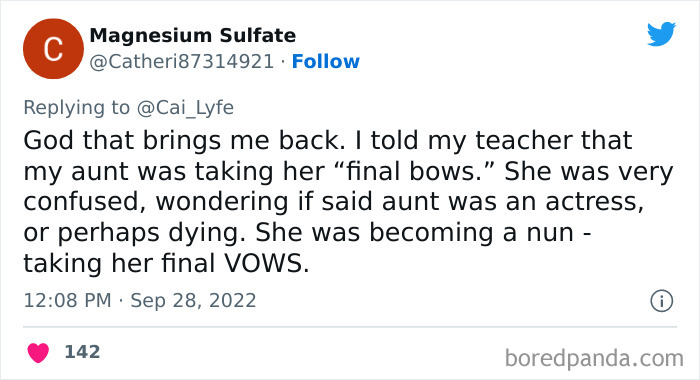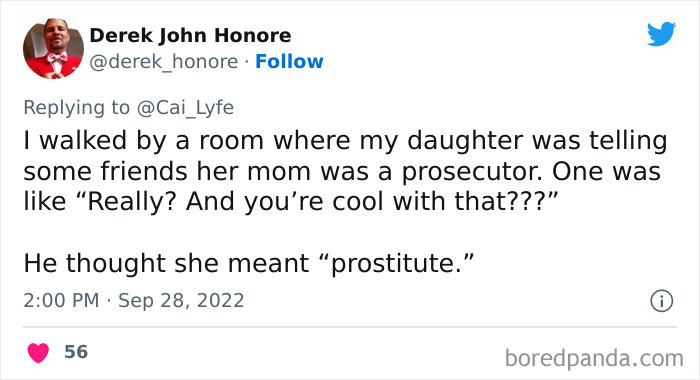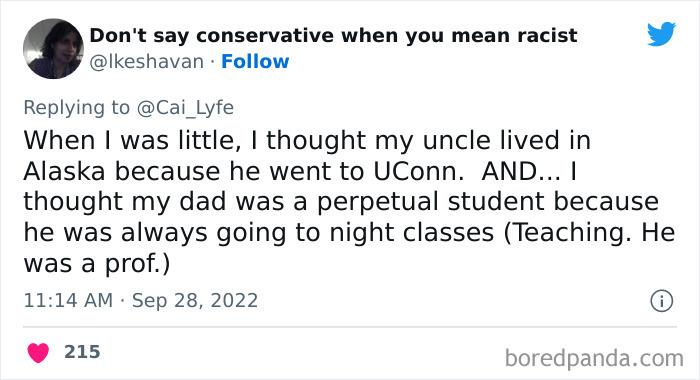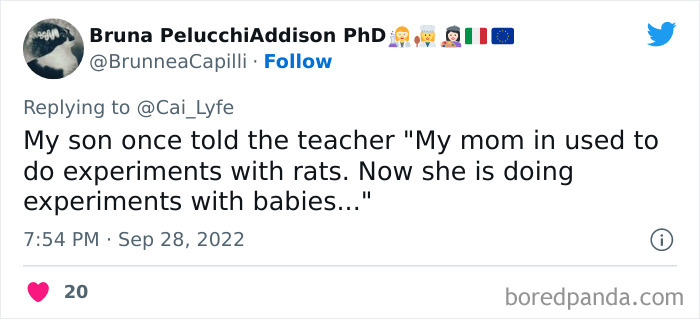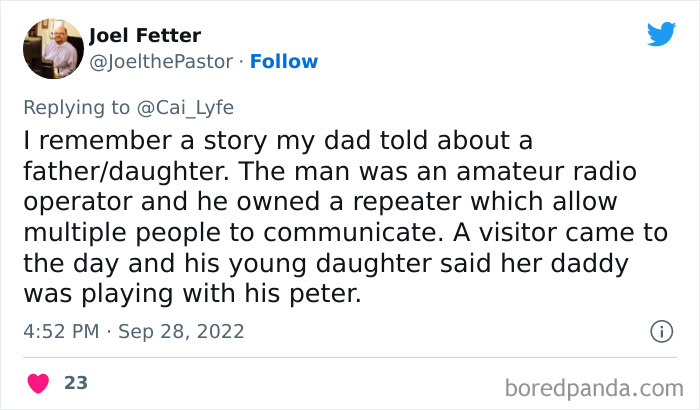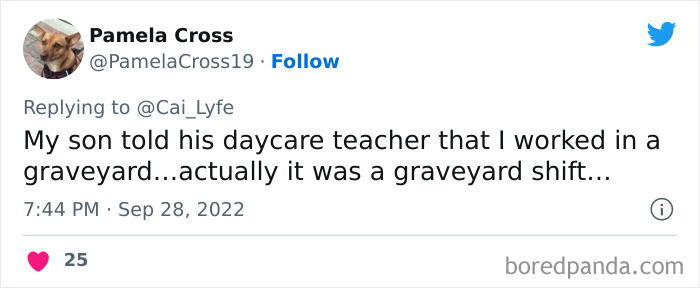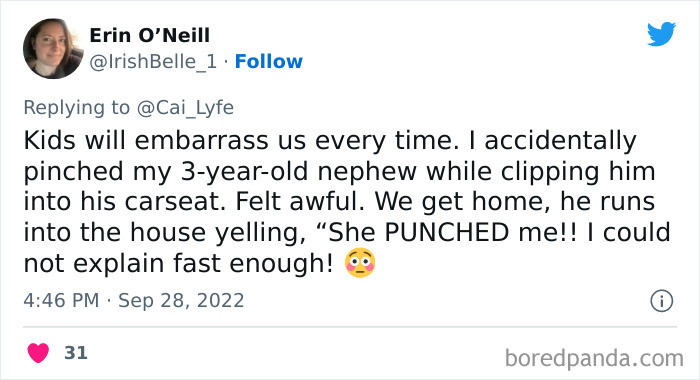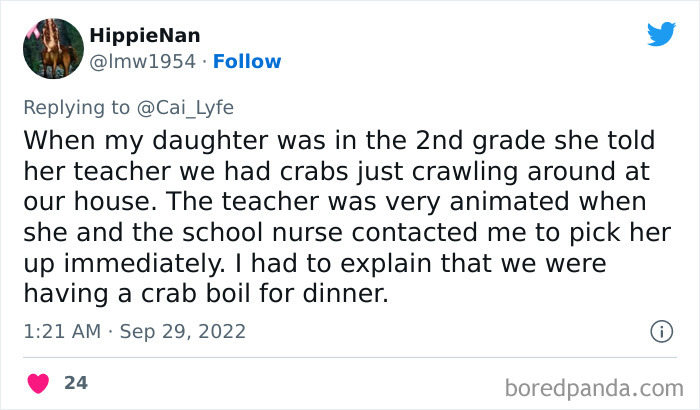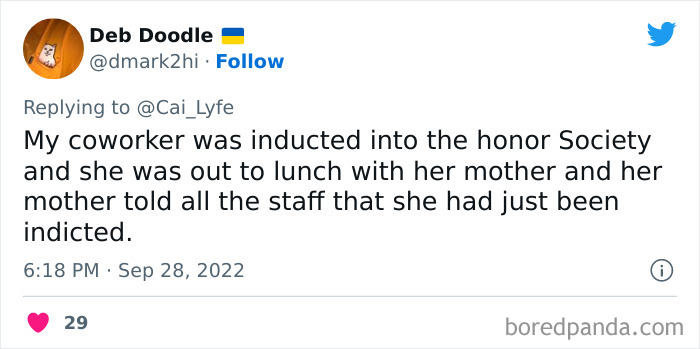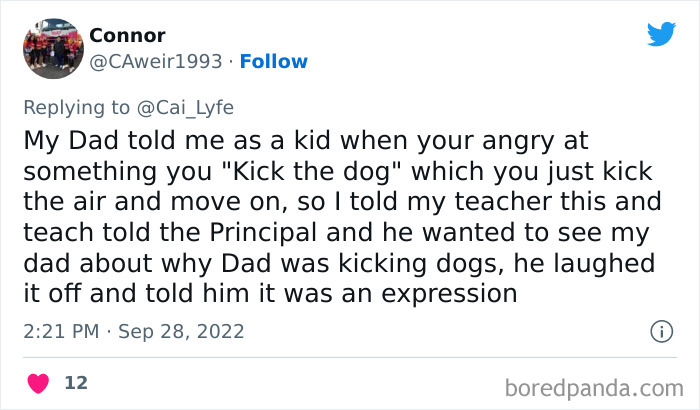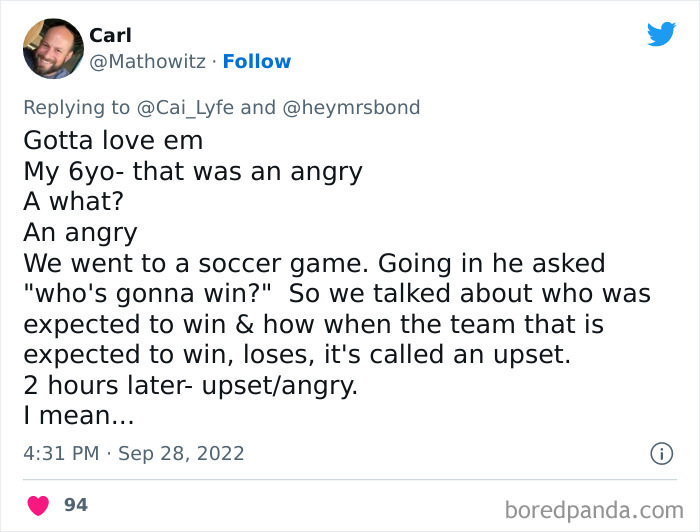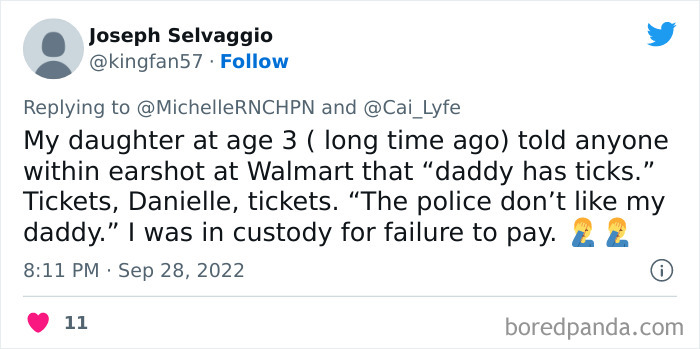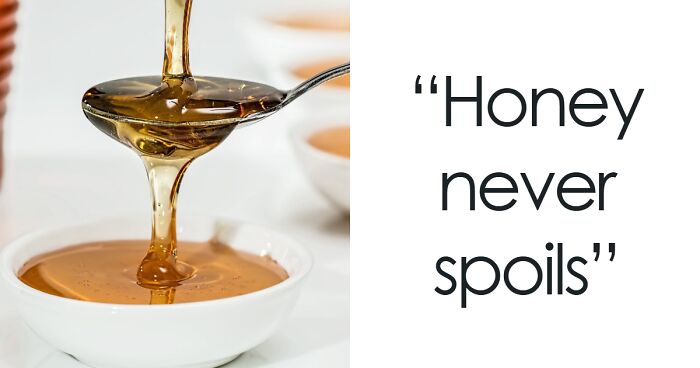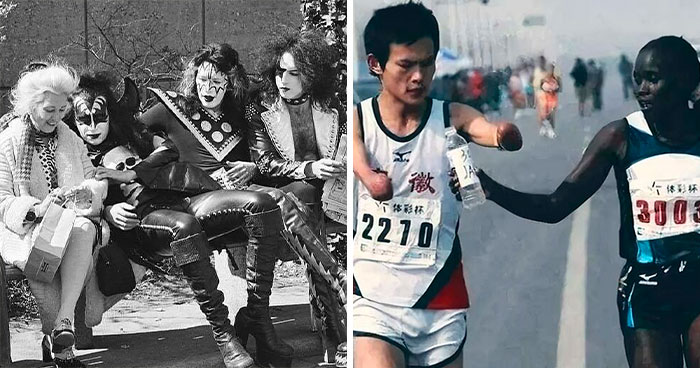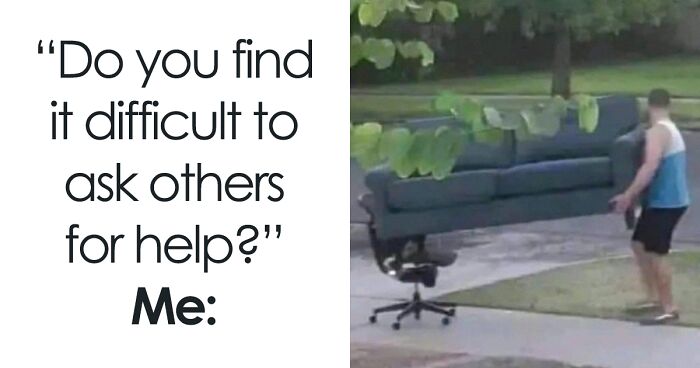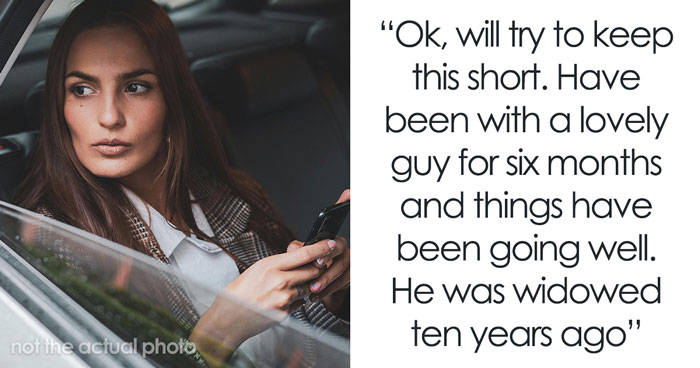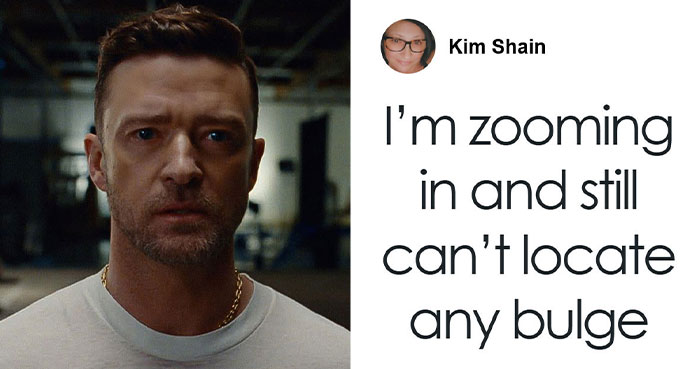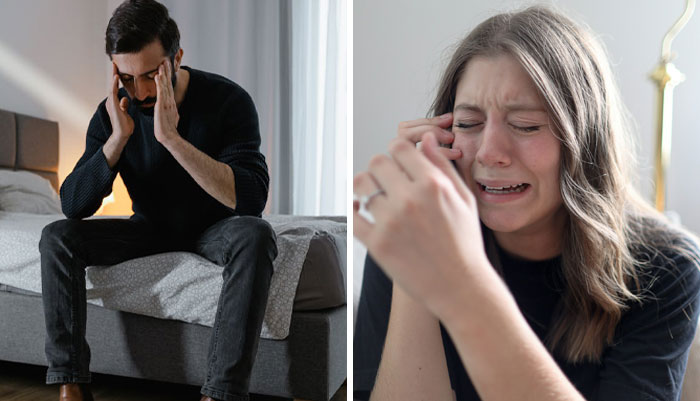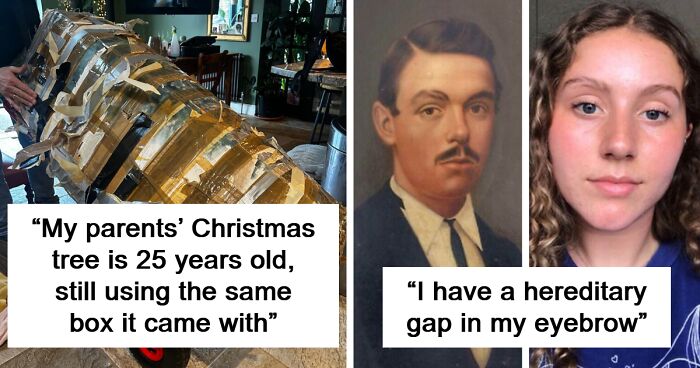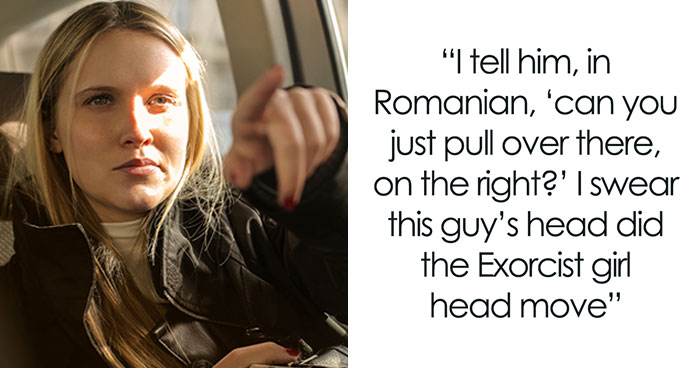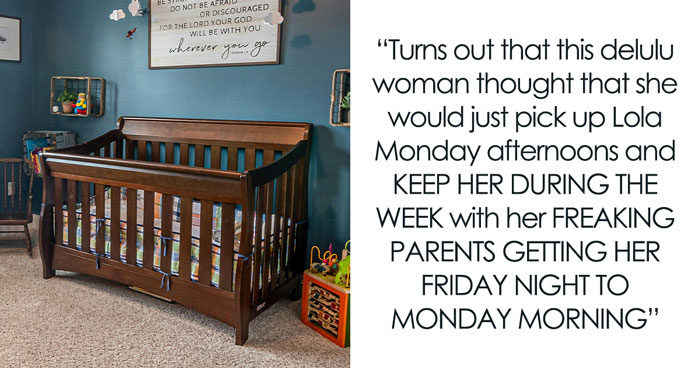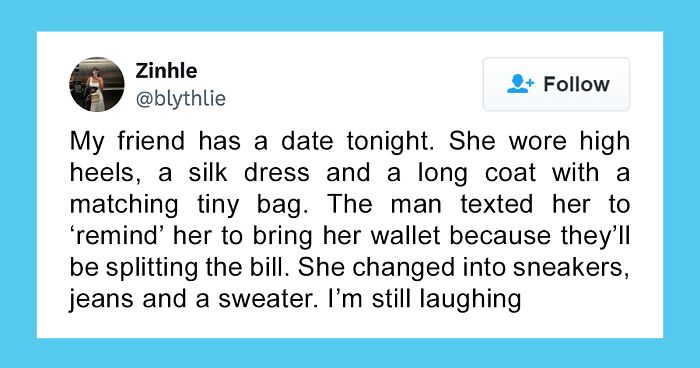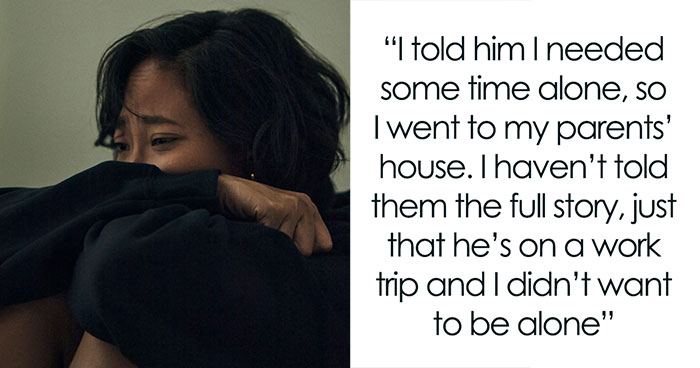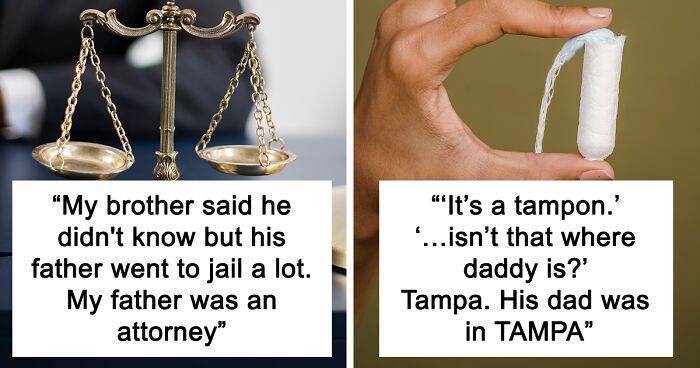
40 Times Kids Delivered A Story In Their Own Words Which Resulted In Awkward And Hilarious Misunderstandings
Parents will often encourage their kids to express themselves. "Use your words!" is a common phrase you can hear on a playground. But it's not always easy for children. They are still learning.
However, their attempts to articulate their feelings and thoughts can lead to really hilarious misunderstandings.
"The fact that my nephew told his teacher his mom is on parole. She's on patrol, serving in the National Guard," Caila C (@Cai_Lyfe) recently tweeted. "Patrol."
The anecdote quickly went viral and was also reposted on several social media platforms, prompting people to share more situations where kids tried to say something but sent the wrong message. Continue scrolling to check out the best ones we compiled just for you!
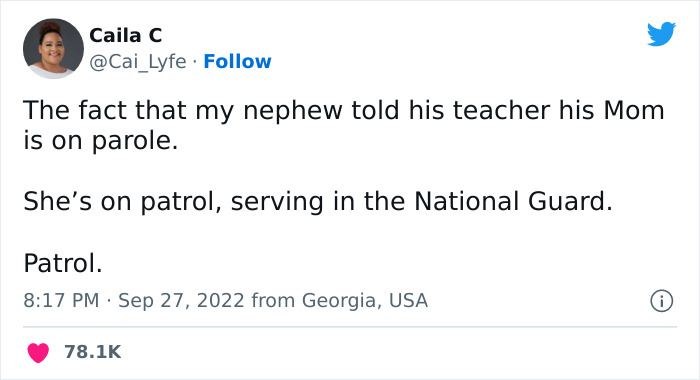
Image credits: Cai_Lyfe
This post may include affiliate links.
Learning language is a natural process babies are born knowing how to do. Interestingly, all children, no matter which language their parents speak, learn it in the same way.
Overall, there are three stages of language development, and they occur in a familiar pattern. So, when children are trying to master their native tongue, they follow an expected series of milestones. However, note that individual children will progress at their own pace along this timeline within an expected range of deviation.
I casually mentioned once that my dads been inside every prison in the state. He’s a government building inspector.
The first stage is learning sounds.
When babies are born, they are able to hear and distinguish all the sounds in all the languages in the world. That’s about 150 sounds in about 6500 languages, though no language uses all of those sounds.
(The sounds a language uses are called phonemes and English has about 44.)
In this stage, babies learn which phonemes belong to the language they are learning and which don't. The ability to recognize and produce them is called "phonemic awareness."
The best way to promote language development for babies is simple: just talk to them. Babies learn by experiencing (and listening to) the world around them, so the more they are exposed to it the better.
Additionally, you can put words to their actions. Talk to them as you would in conversation, pausing for them to respond, then you can say back what you think they might say if they could. But keep in mind that simply talking to them attentively is enough for them to pick up the language.
Language development stage number two is learning words.
At this stage, children learn how the sounds in a language are put together to make meaning. For example, they realize that the sounds m-ah-m-ee refer to the “being” who cuddles and feeds them.
This is a very significant step because everything we say is really just a stream of sounds. To make sense of those sounds, a child must be able to recognize where one word ends and another one begins. These are called “word boundaries.”
However, children are not learning words, per se. They are actually learning morphemes, which are the smallest chunks words can be broken into. A morpheme may be a word on its own or may be combined with other morphemes to form one. So in “mommy,” there are two morphemes: "ma" and "mee."
You can help your child build their language skills by reading to them often. And of course, by having more child-centric conversations with them. Research shows that babies learn language best within a social context.
Another way to encourage their communication and social skills is to mimic their noises and say them back to them. You can also mirror their facial expressions and describe their actions as well as narrate what is happening around them.
The third language development stage is learning sentences.
That means they start putting words in the correct order. For example, they learn that in English we say "I want a cookie" and "I want a chocolate cookie," not "Want I a cookie" or "I want cookie chocolate."
Children also begin to pick up on the difference between grammatical correctness and meaning. Noam Chomsky highlighted this in the sentence “Colorless green ideas sleep furiously.”
Children will know that although the sentence is grammatically correct, it's nonsense.
As a mandated reporter (and, yes I am. I work with foster youth) it is our responsibility to get the facts before we call cps. It's not only important for the case (if there is one) but also so the authorities don't get called out unnecessarily.
To promote language development during this stage, model good speech habits by speaking clearly, looking at them in the eye, refraining from interrupting, and giving them a chance to talk.
You can also expand on what they say to give them an idea of more complex ways to articulate their ideas and requests. Ask your child lots of questions and encourage their questions too to keep the dialog going.
Did he ... or just had to retake class over and over for 28 years.....
The surgeon went in for the lobotomy and came out empty handed.
By the time they're 30 to 36 months old, about 90% of what children say is grammatically correct.
The mistakes they make are usually things like adding -ed to irregular verbs to form the past tense. For instance, they might say "I falled down" instead of "I fell down."
But learning to speak is quite the challenge, so no wonder they make bigger mistakes as well. And if the hiccups turn out to be as amusing as the ones in these pictures, they will probably live within the kid's family lore for a very long time!
VPN is vocational practical nurse, with the least amount of schooling. LPN is licensed practical nurse, and RN is registered nurse, with the longest amount of schooling. Then there's a nurse practitioner, who is closer to a doctor and can actually prescribe medication. A nurse can also get a PHD.
Wouldn't the adults be able to tell that, given that this happened in a grocery store with a seafood department, the child meant crabs as in the food, not the other kind (which the child obviously has no idea what they are or that there is a double meaning to the phrase "I've got crabs" or "my mom has crabs!!")? Context clues presumably dictate that it isn't the other kind of crabs.
Well, technically I drink and drive too. Water, energy drinks, coffee etc XP
Good for you! “If the police police the people, then who polices the police?”
I could just be paranoid but what if someone broke out of prison and decided to attack his guard's family? Just sayin'... across the street from a prison is NOT a good house location for a family...
Pfff, certainly because taking out brains is obviously the best part of any neurosurgical case!
One of the kindergartens in my city had a teacher note out some time back: "Don't believe ever word your kid tells you about our kindergarten and we promise we will not believe every word your kid tells us about you"
Like the daycare wouldn't know that a 3-year-old doesn't have the best listening/comprehension skills and would likely misunderstand the name Indiana? Wouldn't the parents tell the daycare what they do for a living (not that they have to, but to specify what their work hours are) so that the daycare would know why that parent wasn't picking the kid up?
I don't remember the full context, but when my kindergarten teacher said something like "what do we do with the 11?" and I answered "double down!" I got a letter sent home and my dad got yelled at by my mom. He taught me blackjack when I was 3.
While others may take what kids say literally, most teachers would be well aware of mispronunciations and use of incorrect words.
My oldest boy couldn't pronounce popcorn when he was 3/4 - so instead he would loudly request "c**k porn" - he's 17 next week, still has yet to live it down
I don't remember the full context, but when my kindergarten teacher said something like "what do we do with the 11?" and I answered "double down!" I got a letter sent home and my dad got yelled at by my mom. He taught me blackjack when I was 3.
While others may take what kids say literally, most teachers would be well aware of mispronunciations and use of incorrect words.
My oldest boy couldn't pronounce popcorn when he was 3/4 - so instead he would loudly request "c**k porn" - he's 17 next week, still has yet to live it down

 Dark Mode
Dark Mode 

 No fees, cancel anytime
No fees, cancel anytime 


